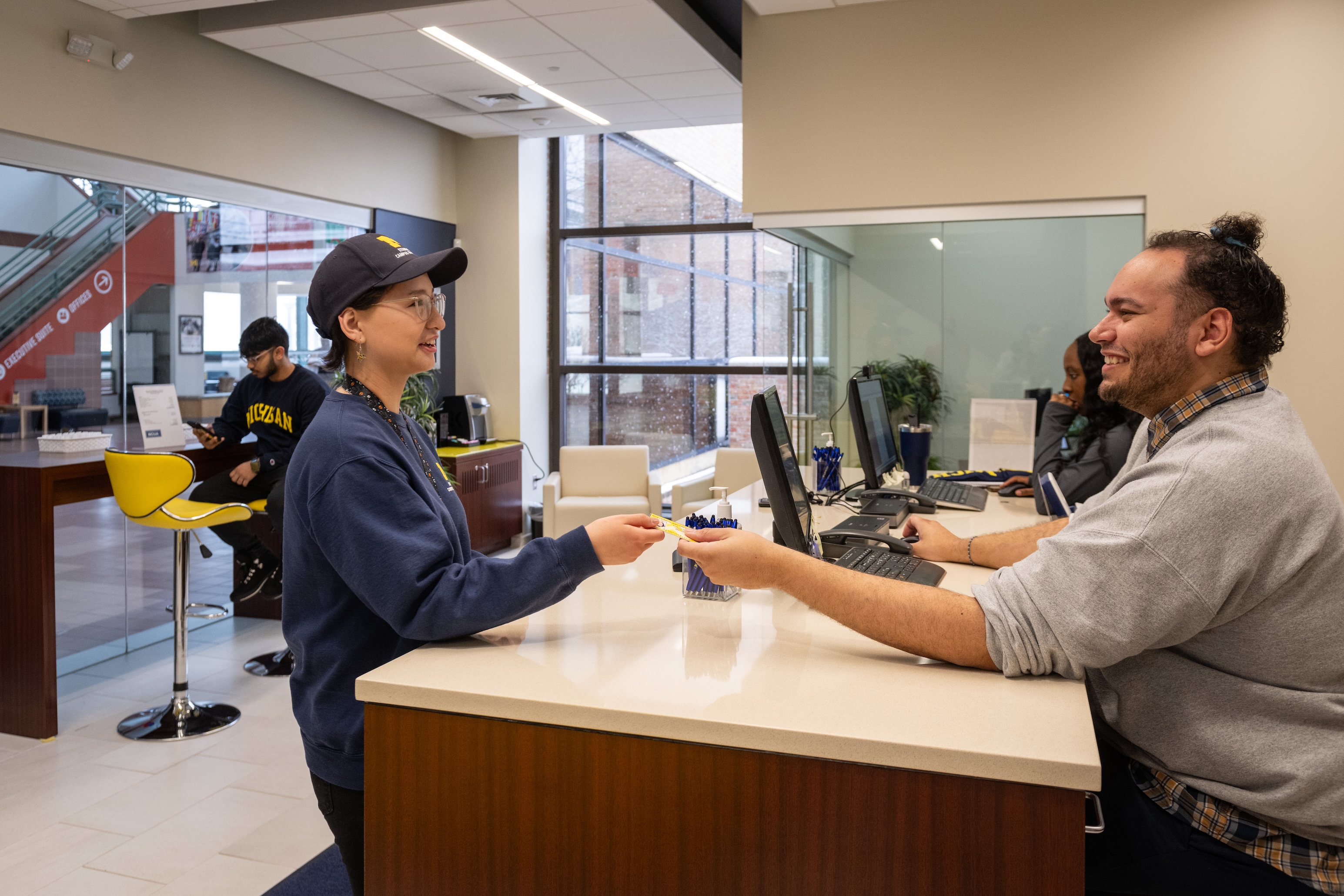What is medical amnesty?
Simply put, medical amnesty removes a perceived barrier to calling for help.
The vast majority (more than 95%) of U-M students surveyed stated they would always call for help if they felt a friend was in danger, but those who said they would not cited legal concerns as one reason.
Legislation in the State of Michigan provides for Medical Amnesty, removing the need for this concern. Students who are under the legal drinking age or using other drugs may now reasonably expect that if they seek medical assistance for legitimate health care concerns related to alcohol or other drug (AOD) use, they will not face criminal prosecution in connection with their alcohol or other drug use.
The University of Michigan maintains the discretion to refer students for appropriate educational support to reduce future risk and promote a student’s well-being.
How does medical amnesty work?
Call 911 or emergency responders immediately when you see the signs of alcohol poisoning or drug overdose.
Stay with the individual who needs assistance until help arrives.
Help turn the person on their side and administer naloxone if you think the person might be experiencing an opioid overdose.
Cooperate with emergency responders to help the individual in need of assistance. Share information with them as you feel comfortable, and provide assistance as needed.
What happens after help is provided?
The university will always prioritize care by providing an educational and supportive response through our AOD Programs. After the incident, a meeting will be scheduled with a University staff member. The student involved will be notified about this meeting through their U-M email account.
During the meeting, the student and staff member will discuss the incident. The student will determine how they would like to move forward and work with the staff member to identify appropriate educational supports to reduce future risk and promote the student's well-being. These educational supports are required to be completed by the student. If a student does not complete the requirements, they may be subject to additional requirements or formal disciplinary action.
Will the incident be on my record?
The university will always prioritize care by providing an educational and supportive response through our AOD Programs. A student may be asked to complete educational supports to promote their well-being moving forward and reduce future risk. If the student completes these educational supports, they will not have a disciplinary record for the incident. The University will maintain a non-reportable record of the incident. It is always case dependent whether a student will face formal disciplinary action from the University when medical amnesty applies.
Will my parents find out?
It depends. Per the Parent-Family Communication Program, U-M will notify parents/family of first-year students under the age of 21 if the student has been transported to the hospital for AOD-related reasons. This is done to connect the student and their parents/family to AOD and other well-being resources that can reduce future risk and promote a student’s well-being. Parents/family will only be contacted after the student has met with University staff through the previously mentioned process.
Parents/family of students who do not meet this criterion will not be notified by the University. However, many students report better outcomes when they tell their parents/family about all incidents of conduct violations.
When does medical amnesty not apply?
Medical amnesty only applies to help-seeking behavior when alcohol or other drugs are involved. It will not be applied to other violations that occur simultaneously with the AOD violation. This means that medical amnesty does not protect against legal proceedings or disciplinary action for other violations of applicable policies ,including, but not limited to distributing illegal substances, harassment, physical misconduct, sexual misconduct, and hazing.
Interested in continuing the conversation?
Sign up for wellness coaching at Wolverine Wellness.
Planning a program, workshop, or training? We offer virtual and in-person programming. Request a consultation or program, or check out the Well-being Toolkit for more resources.
What's too much? Check out these resources to help you explore your relationship with alcohol and other drugs.

Student receiving assistance from University of Michigan staff.
